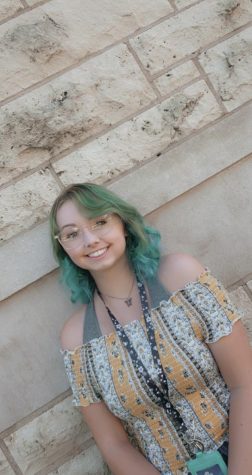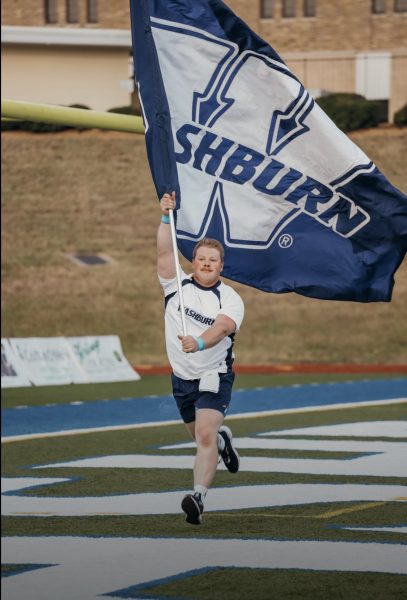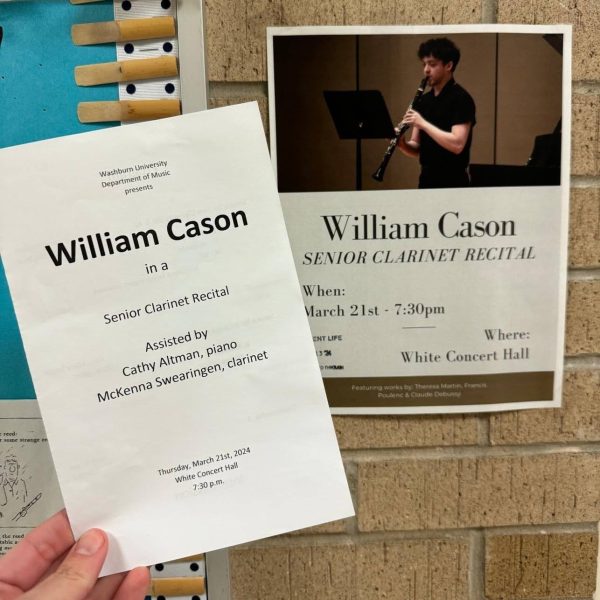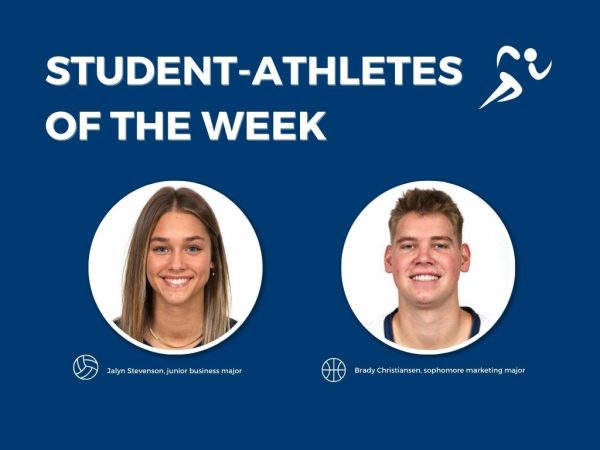Staff profile: custodian Steven Wakes tells us how he spreads kindness
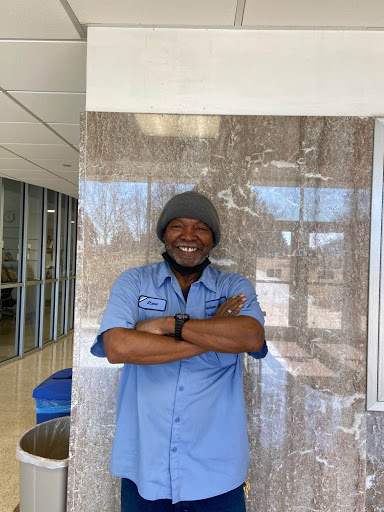
Keeping the campus clean: A mask doesn’t stop Steve from shining a smile to help lift the spirits of Washburn students. But for this photo, Steve was able to show people the smile behind the mask.
Many students at Washburn often have interactions with the custodial staff over the course of their many semesters on campus. While these short interactions might just be a simple hello or a good morning, for some of the staff, like Steven Wakes, it has a more lasting impact.
The custodians play such an important role at the university and with COVID being in the equation, they must work even harder to keep us safe. Steven Wakes was born and raised in Topeka, Kansas, and has been working at Washburn University as a custodian for over 18 years. At age 62, he’s working toward retiring but still can’t shake his hardworking personality.
Wakes starts his days off early at 7 a.m. He takes care of Stoffer Science Hall first, then he cleans Lincoln Dining Hall followed by Bennett Computer Center. Next he goes to Carnegie Hall and finally returns to Stoffer. His job is to help keep each building stocked on supplies and to keep the areas, especially heavily trafficked spots, cleaned. While the cleaning routine is mostly the same, since COVID the workload has been more on the custodial staff to stop the spread.
Wakes talked about the teamwork among the custodian staff, the connection between them and their drive to help each other out. With Wakes being trained on how to clean all the areas, he often gives his wisdom and helps wherever he’s needed.
As someone who has worked on campus for so long, he’s been able to watch Washburn grow and see the students develop, some of whom he’s known for two to three years. This connection with the students is important to him.
“There’s going to be times where they come in early in the mornings to study. I want to connect with them, so they know that somebody is here. I don’t want them to be afraid to come into the building. I want them to feel comfortable,” Wakes said.
His pass-it-along spirit is his simple way of spreading kindness in these hard times when reaching out and being a community has shown to be hard when our smiles are hidden behind masks and we can’t gather together. This challenge hasn’t stopped him from still showing joy to the world.
“I’m the type of person that I know we all have good days and bad days, but I always like to bring the students up. I thrive on their energy, if they give it back, I thrive on it and then I give it to somebody else.”
Wakes believes communication with those he comes into contact with is key.
“I think everybody should communicate, even the students should communicate with the custodians. There might be times where I need to let them into the computer area, and I don’t want them to think they can’t come to me; I want you to know who I am,” Wakes said.
As someone who has spent years communicating with people and connecting, Wakes knows his way around the art of connection. “I tell students to have a good weekend, and I’ll see them next week! They have something to look forward to. I’ve seen students come in down and worried and all I say is, ‘don’t worry. We all have ups and downs but it’s going to get better. There’s no reason to worry and obsess over how you got to study, you got this. I got confidence in you!’ And that’s the beauty of it. If I can get you to smile for that split second, then at least you can say that you smiled once today.”
Wakes said he believes love is what binds everyone together. He knows people face all kinds of challenges, but he believes he can do his part to help lift the spirits of others. His love for the students and staff at Washburn is simply part of who he is.
“Tomorrow isn’t promised to us; we have to remember that. Keep pushing. If you get up happy, then be happy, do what you got to do to make it because it’s hard, harder now than it has ever been. College degrees and high school diplomas are so important now, and if you can get it, then I’m proud of you.”
Edited by Donna Whipple, Matthew L. Self
Your donation will support the student journalists of Washburn University. Your contribution will allow us to purchase equipment and cover our annual website hosting costs.
